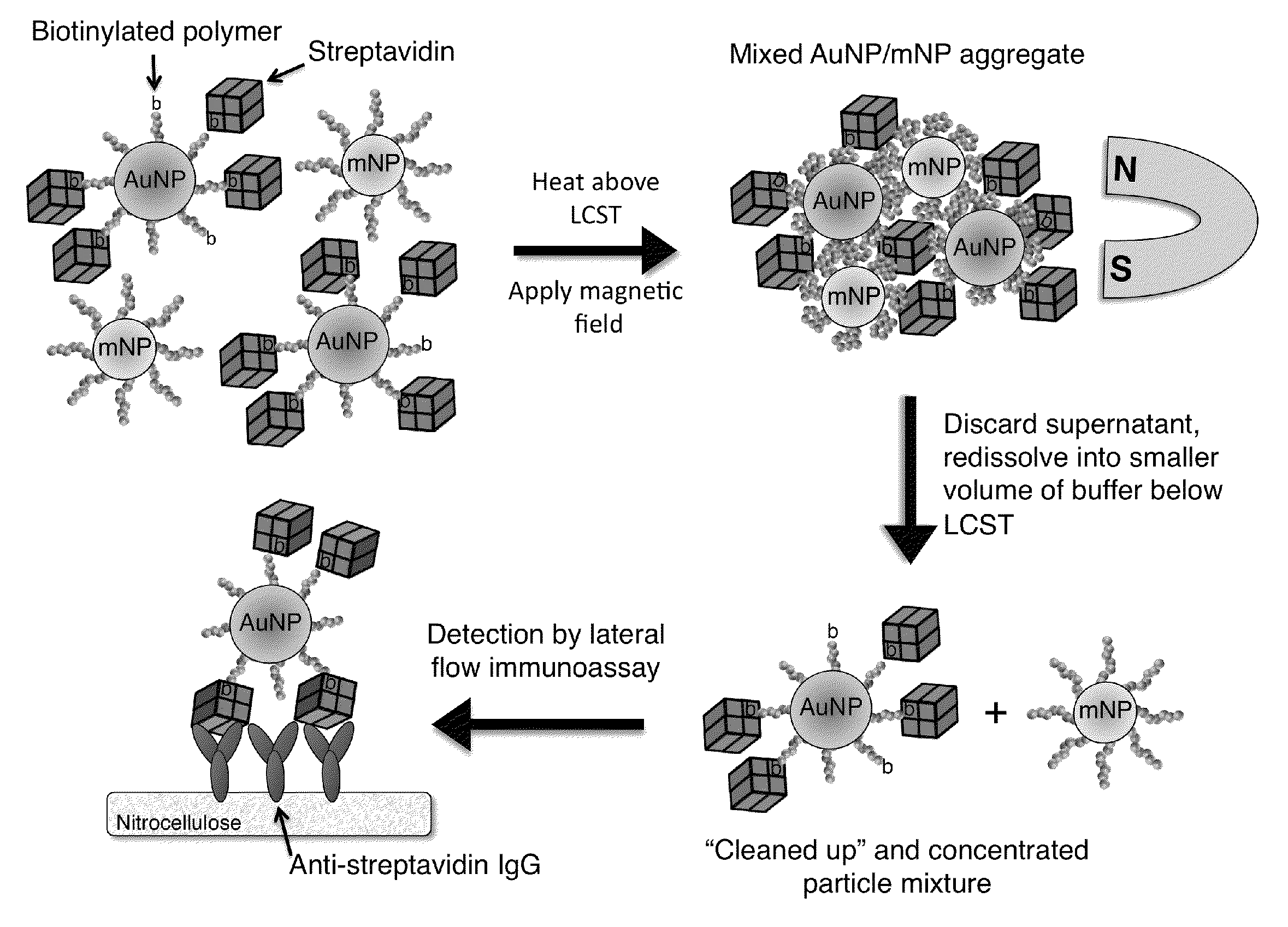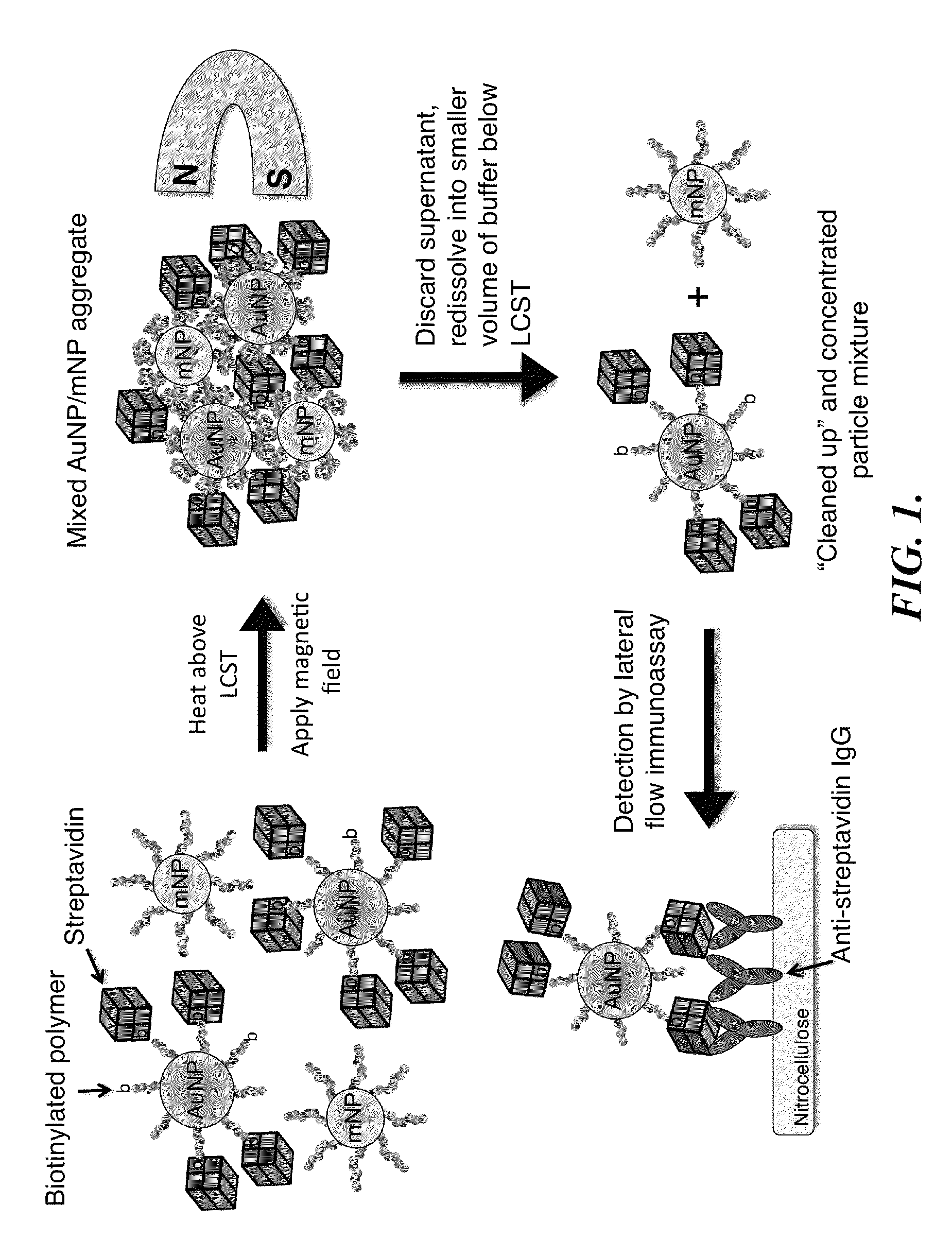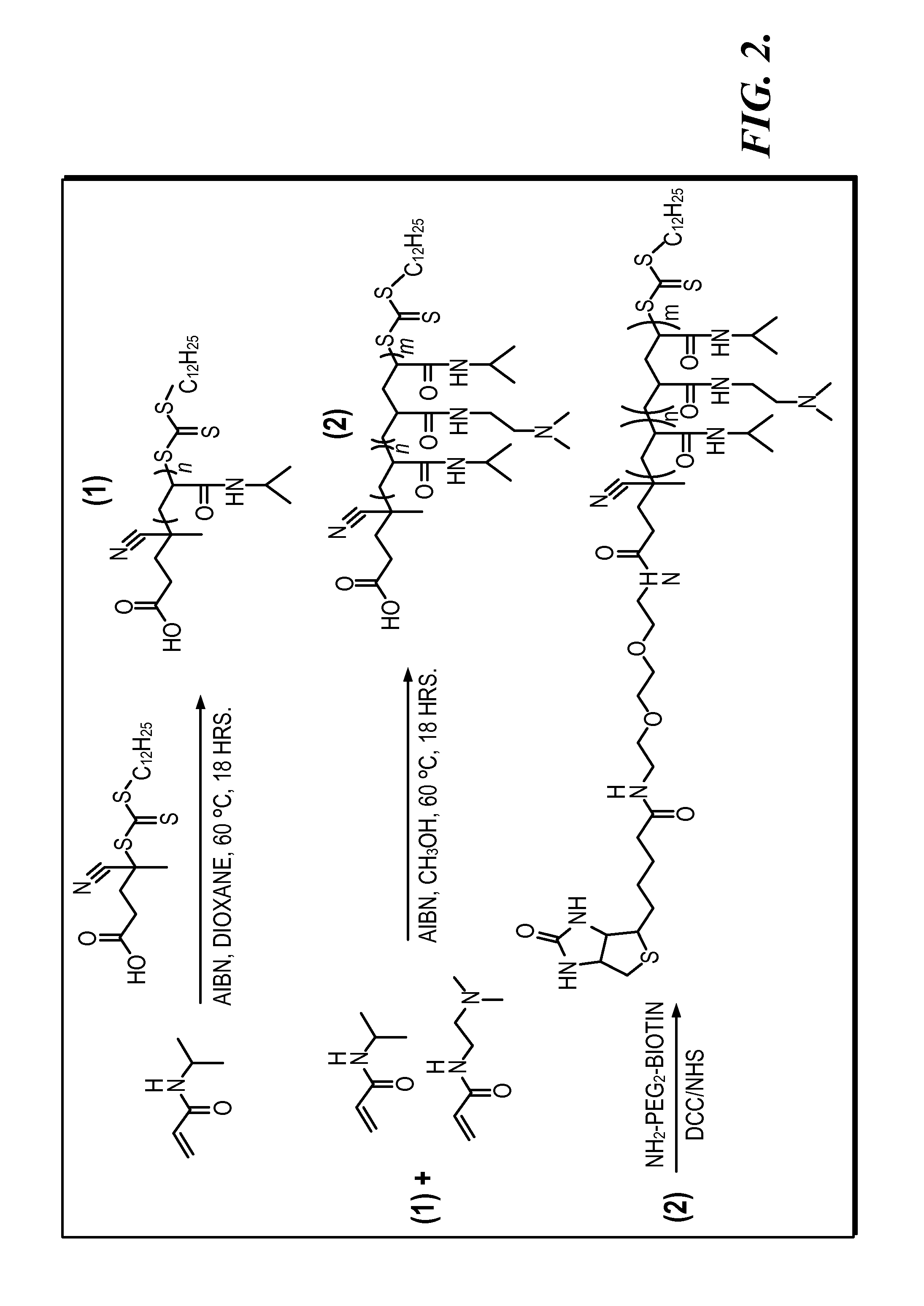System and method for magnetically concentrating and detecting biomarkers
a magnetically concentrated and biomarker technology, applied in the field of magnetically concentrated and detecting biomarkers, can solve the problems of limited biomarker repertoire, limited range of biomarkers that are detectable by immunochromatography, and limited sensitivity, so as to achieve the effect of increasing the sample volum
- Summary
- Abstract
- Description
- Claims
- Application Information
AI Technical Summary
Benefits of technology
Problems solved by technology
Method used
Image
Examples
example 1
Preparation and Characterization of Representative Magnetic and Non-Magnetic Particles and Their Use in a Representative Method of the Invention
[0171]In this example, the preparation and characterization of representative magnetic and non-magnetic particles useful in the methods of the invention are described. The use of these particles in a representative method of the invention is also described.
[0172]System Design. The bioseparation / enrichment system consists of a mixture of magnetic and gold nanoparticles, each with a “smart” polymer coating. Gold nanoparticles (about 25 nm diameter) were modified with a biotinylated amine-containing diblock copolymer, and magnetic nanoparticles (about 10 nm diameter) were synthesized directly with a homo-pNIPAAm polymer surface coating. When mixtures of these two particle types were heated above the polymer LCST, the particles co-aggregated driven by hydrophobic interactions between the collapsed polymers. 8 kDa homo-pNIPAAm (2 mg / mL) was added...
example 2
Preparation and Characterization of Representative Magnetic and Non-Magnetic Particles and Their Use in a Representative Multiplexed Method of the Invention
[0196]In this example, the preparation and characterization of representative magnetic and non-magnetic particles useful in the methods of the invention are described. The use of these particles in a representative multiplexed method of the invention is also described.
[0197]FIG. 9 is a schematic illustration of a representative non-magnetic particle useful in the practice of the methods of the invention for capturing a biomarker. This universal bioconjugate design allowed for facile multiplexing by simply adding multiple different biotinylated antibodies to the sample before addition of the universal streptavidin-gold reagent. FIG. 10 is a schematic representation of a representative method of the invention, a magnetic enrichment lateral flow immunoassay, utilizing the universal streptavidin-gold reagent.
[0198]Polymer Synthesis. ...
PUM
| Property | Measurement | Unit |
|---|---|---|
| volume | aaaaa | aaaaa |
| concentration | aaaaa | aaaaa |
| volumes | aaaaa | aaaaa |
Abstract
Description
Claims
Application Information
 Login to View More
Login to View More - R&D
- Intellectual Property
- Life Sciences
- Materials
- Tech Scout
- Unparalleled Data Quality
- Higher Quality Content
- 60% Fewer Hallucinations
Browse by: Latest US Patents, China's latest patents, Technical Efficacy Thesaurus, Application Domain, Technology Topic, Popular Technical Reports.
© 2025 PatSnap. All rights reserved.Legal|Privacy policy|Modern Slavery Act Transparency Statement|Sitemap|About US| Contact US: help@patsnap.com



